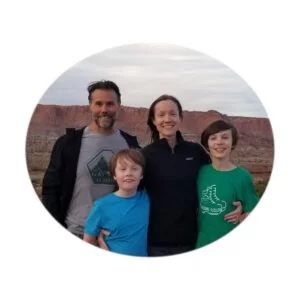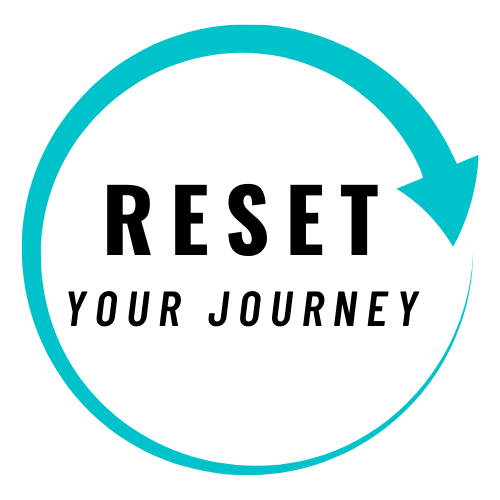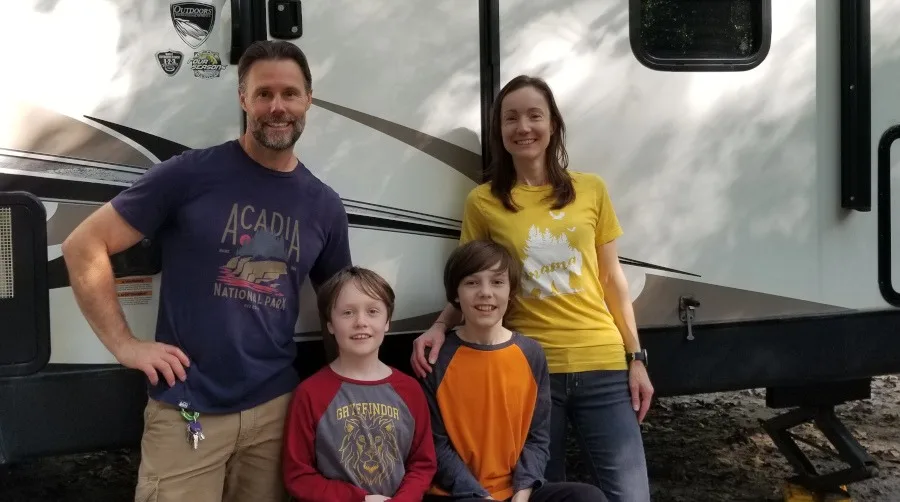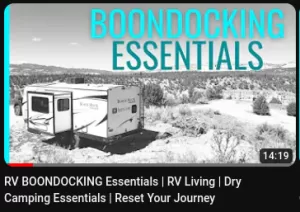Last Updated on 05/27/2024 by Glynn Willard
Full-Time RV Living For You
If you’re here, you’ve thought about living in an RV full-time.
Thinking about fulltime RVing is one thing, put preparing for it is another.
Sure, you’ve spent copious hours researching the best RV to live in fulltime.
But that’s just a very small part of the equation before hitting the open road.
I hope our experience as full-time RVers gives you a roadmap to living fulltime in a camper by the end of this article.
Full-time RVing is less trendy than it was in 2020, but that doesn’t mean it won’t be an experience of a lifetime!
The good news is, many of the RV manufacturers are building RVs better equipped for this new lifestyle.
Fulltime RV Living: Where To Begin?
There’s a lot of moving parts with such a life disruption.
The best way to make the transition to living fulltime in a camper is to solidify your plan first.
What do you need to consider before diving into living in a small space with wheels?
We’ll go into more detail later in the article, but really think about each of these questions.
- Have you figured out why you really want to go fulltime?
- Should you sell your house or rent it out?
- Do you know how you’ll sell you home or have renters managed?
- Will you store your possessions in a storage unit or sell them in preparation for fulltime camper living?
- Are your finances and bank accounts squared away?
- Do you know which state will be your domicile?
- Have you looked into national health insurance plans?
- How will you manage your annual medical appointments and medication?
- How will you handle your mail?
- What style of camping do you think suits you?
- Once you figure out the previous, have you figured out the best camper to live in fulltime?
- Do you know the region of the country that best suits you for fulltime RVing?
- Will you stay in RV parks, state parks or boondock on public lands?
- How often will you move?
- Are you traveling with pets?
- Do you have a timeframe for fulltime RV living?
- What are your options if you don’t like living in a camper?
- If you’re not independently wealthy, how will you maintain a mobile income?
- The big question: Is your whole family 100% onboard?
Let’s go into more detail about considerations when preparing to live in a camper full time.
Why Do You Want To Live Fulltime In A Camper?
Spending some real time reflecting on this question. Are you trying to escape a stressful life?
Do you simply have an adventurous spirit?
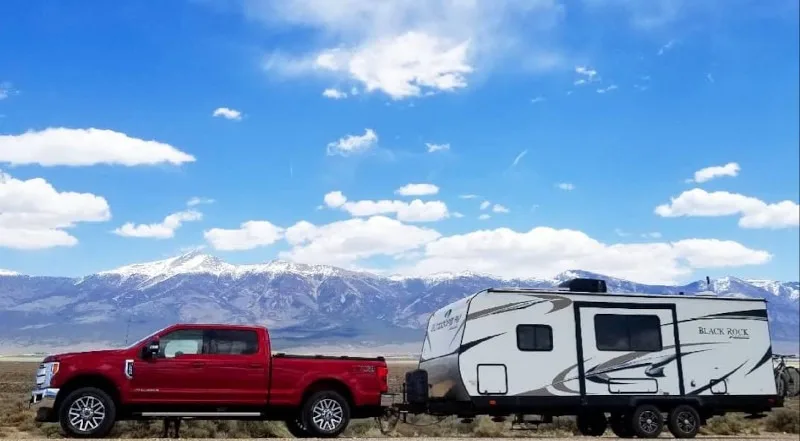
Perhaps everyone in your family has a remote income and you’re just bored with the same mundane day in and day out lifestyle.
Living fulltime, especially the way we do is very exciting. But it is just as stressful as owning and maintaining a traditional home.
You’ll be trading one set of stressors for another. But I don’t want to downplay this amazing lifestyle.
It’s great for your psychological wellbeing to do things that challenge you and get you out of your comfort zone.
So it’s a good idea to keep all of this in mind if you’re just trying to escape a stressful life.
Are you ready to grow as a person through full time RV living?
Should You Sell Your House Or Rent It?
Certainly, your financial situation and monthly payments will weigh heavily on this decision.
You’re bright and can do the math to figure out the most advantageous situation.
But if you decide to sell, will you do it yourself or use a Realtor?
If you decide to rent it out, who will manage the property?
It always sounds great in the beginning, but rental properties can be a lot of work.
We had a rental property once and decided despite the great tax advantages, one unit was not worth the headache to self manage the property.
Now if you have five or more properties and outsource to a management company, you’re golden. Get out there and RV!
What Do You Do With Your Possessions While Full-timing In A Camper?
Eliminating so many possessions is what drives some individuals to “sell it all and live remotely.”
I completely understand.
We felt like our possessions owned us. Regardless, they take up too much space to fit in your camper.
Are you in a position to pay for a storage space rental?
Have you looked into the cost?
What about keeping only the most prized possessions and selling the rest?
What platform do you use? We used Facebook marketplace and had yard sales on a regular basis.
Facebook worked great since we underpriced everything.
What about storing your possessions in a family members basement if the space is available?
We stored our things and spare vehicle at my parents house.
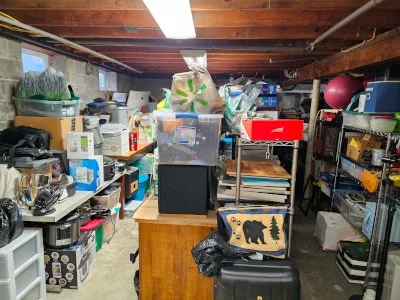
Fortunately, they have been tolerant and welcoming, so we also use it as our permanent address (domicile) and “mail management.”
All of this said, many of the things we stored were forgotten.
And our kids outgrew many of their toys during our RV travels.
Keep this in mind when you ask yourself, “do I really need to keep this?”
Are Your Finances Squared Away?
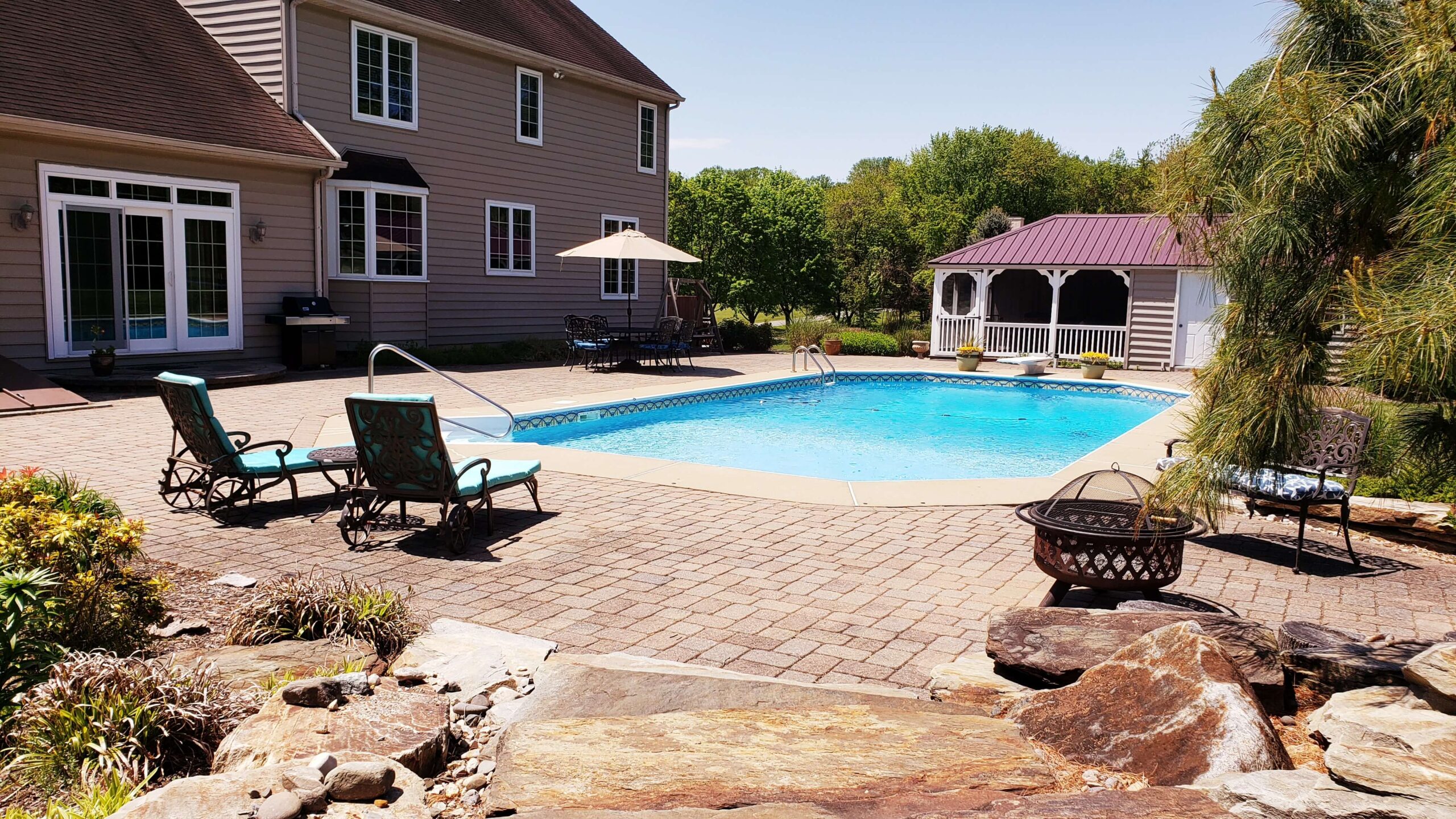
It’s beautiful, but too much work!
Finances alone will be the biggest determining factor to consider if you want to fulltime in a camper.
I realize I’m stating the obvious.
But we’ve come across several folks who left on a whim and a prayer, without the necessary financial resources.
Not only were they stressed and unhappy, they also were burdened with debt and the potential to lose everything.
If you’re digital nomads (remote jobs), this process gets a lot easier.
You can easily spend less money if you embrace cheap RV living and you play your cards right.
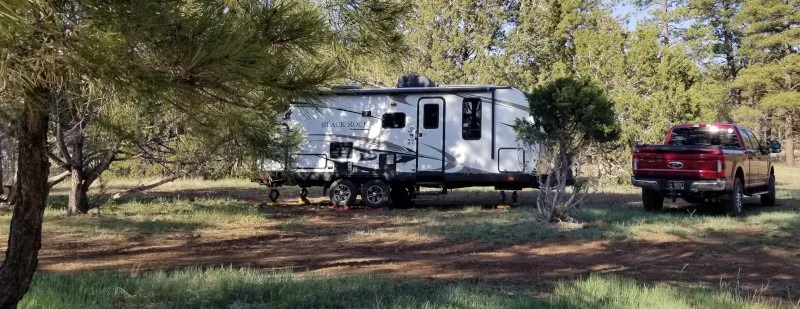
We saved money by boondocking (dry camping) most of the time.
A few suggestions:
- Leave debt free! I can’t stress this enough. If your debt is on an asset rather than a liability, that’s fine.
A reminder. An asset has an income and/or appreciates. - Buy a used RV. A new RV depreciates so quickly! If you finance new, you’ll likely be upside-down right out of the gates.
You’ll also end up with a lot of warranty work on your new tiny home that’s difficult to manage living on the road. - Maintain an account with $10k for emergencies only.
- If you strictly boondock, allot a bare minimum of $2.2k a month if there’s more than two of you.
- If you stay in campgrounds or use a campground pass system, allow for a minimum of $3k a month if there’s more than two of you.
- Make sure your bank can handle your transactions remotely.
- Arrange for online billing and payment for any bills.
- Make sure your insurance company offers RV insurance that covers full-time.
- Please don’t use a debit card. They’re too vulnerable to fraudulent issues and headaches.
Use a cash back rewards credit card instead and pay it off monthly. - Carry cash, but not too much. Cash is easier in a lot of smaller towns.
We’ve even encountered some smaller RV parks that only accept cash.
Takeaway: Steer clear of fulltime RV living if you don’t have the financial means to maintain the lifestyle.
Which State Will You Choose For A Domicile?
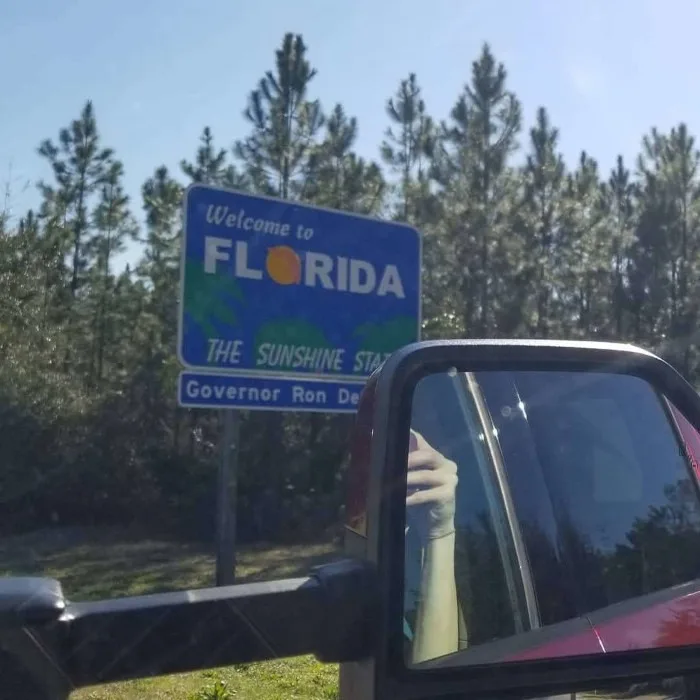
You have choices, but legally you have to have a mailing address.
There are several states that allow remote residency.
By now, you’ve no doubt figured out that Texas, South Dakota and Florida allow remote residency.
Fortunately, none of them have state income tax. Your decision will weigh on:
- Homeschool laws if applicable.
- Mail services.
- Health insurance options.
- Vehicle license and registration.
- Business and personal taxes.
- Vehicle and RV insurance.
Most of the people we’ve communicated with about remote residency decided on South Dakota.
I too found it to be the most appealing state.
What about mail within the United States?
Mail services are available in all three states and include iPostal1, Escapees and Good Sam mail service.
Research each to find the most suitable for you.
What about health insurance for full timing?
Perhaps your employer will offer you a plan that covers the nation. It will be more expensive for you though.
Or do you have to shop the open market if you’re self employed? These are very important considerations.
If you have close family in a particular state who are willing to allow you to “move in with them,” that too is an option.
Case in point, we domicile in Delaware with my parents, which checks all the boxes.
You will have to research and make your own decision based on your circumstances.
I highly recommend going through an insurance broker who specializes in RV full time.
Takeaway: Research and choose your domicile state carefully based on your circumstances.
What Style Of Camping Suits You?
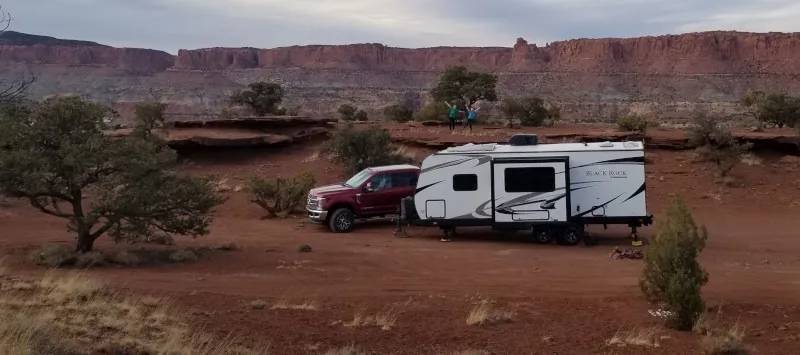
Boondocking allowed us to play on the land.
You have a choice based on preference and finances.
You can boondock exclusively on public land, stay in campgrounds, or mix it up.
There are benefits to both and if you stay for a month at a time in an RV park, the extra costs go down.
But we only ever encountered two RV parks that we would be willing to spend more than a week in total.
They were Palms RV Resort in Yuma where I work camped and Normandy Farms Campground in Massachusetts.
I wanted to work under a good chef and refine my culinary skills in Yuma.
That wasn’t a bucket list item, but I’m so glad I did it!
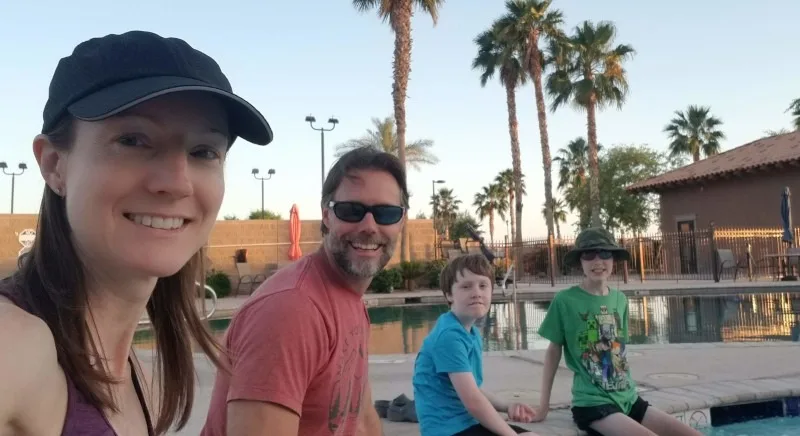
Our work camping gig.
I learned so much! I digress.
If you master the “art of boondocking,”you can save a lot of money, have better views, have a lot more space and “play on the land.”
That was our style.
Campgrounds offer comraderies and a better opportunity to easily meet people.
Boondocking for six days and then spending a mid-week night in a campground (especially a state park) to top off your resources is a great way to camp fulltime!
And it’s an inexpensive.
We also boondocked outside National Parks and used their dump stations to dump and refill our freshwater.
Takeaway: Your camping style will be based on preferences, geographical region and finances.
Have You Figured Out The Best Camper To Live In Fulltime?
This is easily the first consideration that anyone considering full-time in an RV has.
It’s fun to visualize yourself in different recreational vehicles and shop for motorhomes and trailers.
Everyone will have a different opinion on the style, e.g, fifth wheel, travel trailer, class A, class B, class C or truck camper.
They all have their advantages and disadvantages.
You have to first decide what your budget is on a used rig.
Then you can narrow down the type based on your families size and camping style.
We preferred a travel trailer because they’re agile and a well built one was more affordable than any other type of well built rig.
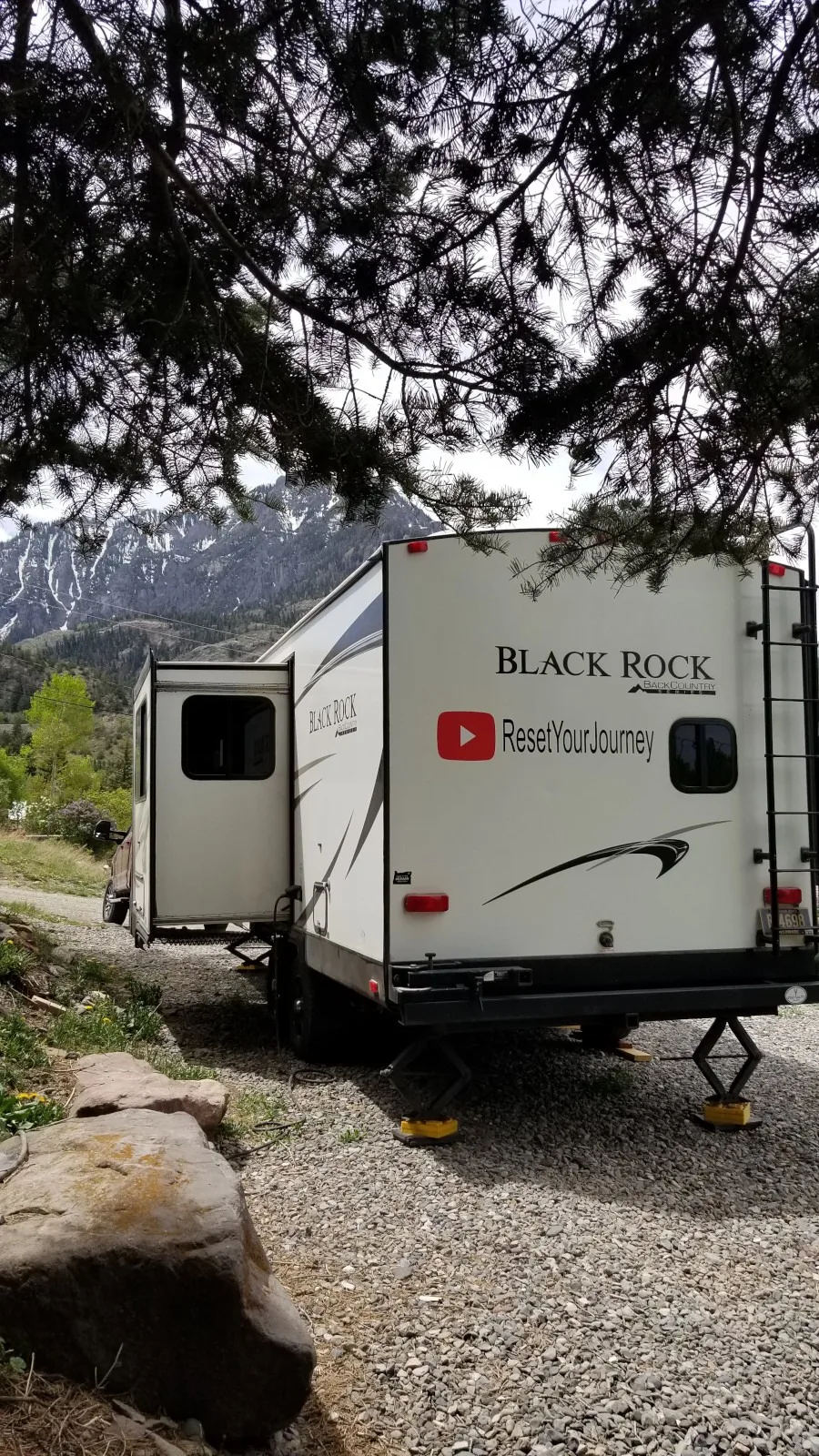
We love the build quality of our ORV.
Do yourself a favor and look first at higher end brands that are a little older.
The quality will pay off!
Takeaway: Base your decision first on finances, second on camping style and finally look at higher end used rigs.
Do You Know Which Region Of The Country Best Suits You For Fulltime RVing?
It’s easy to think you’ll ping pong around the country wherever you like.
But, again, your camping style, weather preferences and finances will play a large role in your decision.
If you plan to boondock most of the time, the east is not your place.
You’ll need to spend most of your time in the west.
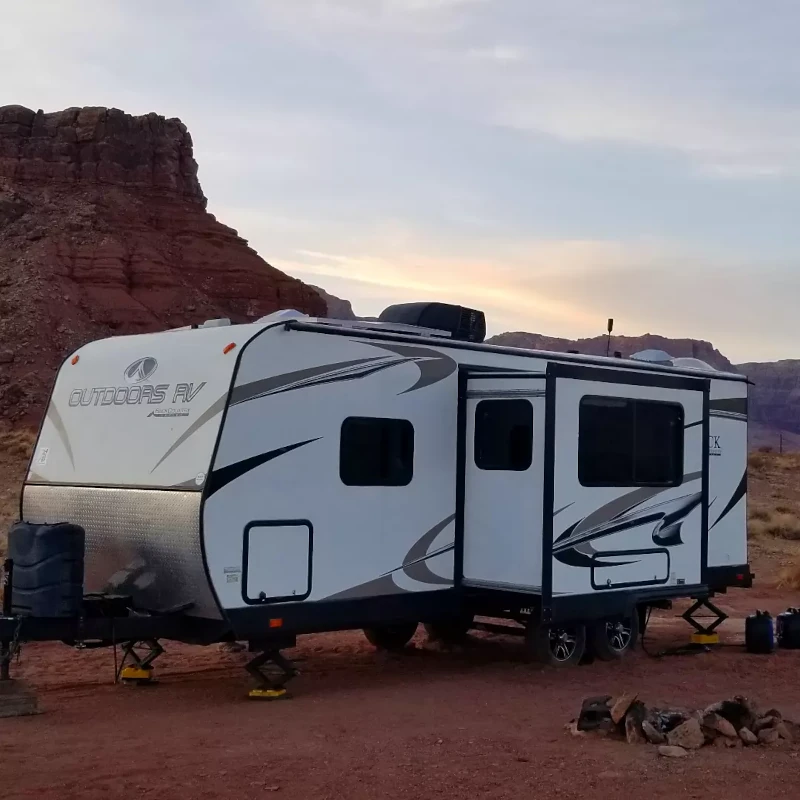
The west is a boondocker’s paradise.
Campground prices are also very different around the country.
We found the least expensive in the mid west, followed by the west, then southeast, leaving the northeast as the most expensive.
You can guess where we spent most of our time.
This begs the next question.
How often will you move.
RVs are expensive and inconvenient to move. OK, not the smaller RVs.
Fuel prices, being a commodity will always go up over the long haul.
You can skyrocket your fuel costs if you move a lot.
If you’re using private campgrounds, move monthly.
If you’re using state campgrounds, move every 14 days.
If you boondock, your tanks will dictate your length of stay in each location.
Takeaway: The region where you spend most of your time will be dictated by weather preferences, finances and camping style.
Do You Have A Timeframe For Fulltime RV Living?
We started out with the intention of 6-8 months.
That turned into two years. I don’t feel like we really slowed down and appreciated the lifestyle for 9-12 months.
Year two was far more relaxed and refined. I felt like a real full-timer!
And what if you don’t like living in a camper?
RV newbies may want to consider a “safety net” plan in case you’re miserable. We’ve seen it happen.
A few trial runs in a rented RV will disclose a lot.
Takeaway: Think ahead and loosely plan for a short run that could become a long run of fulltiming.
Not Sure What You Need For Your RV?
Is Your Whole Family 100% On Board?
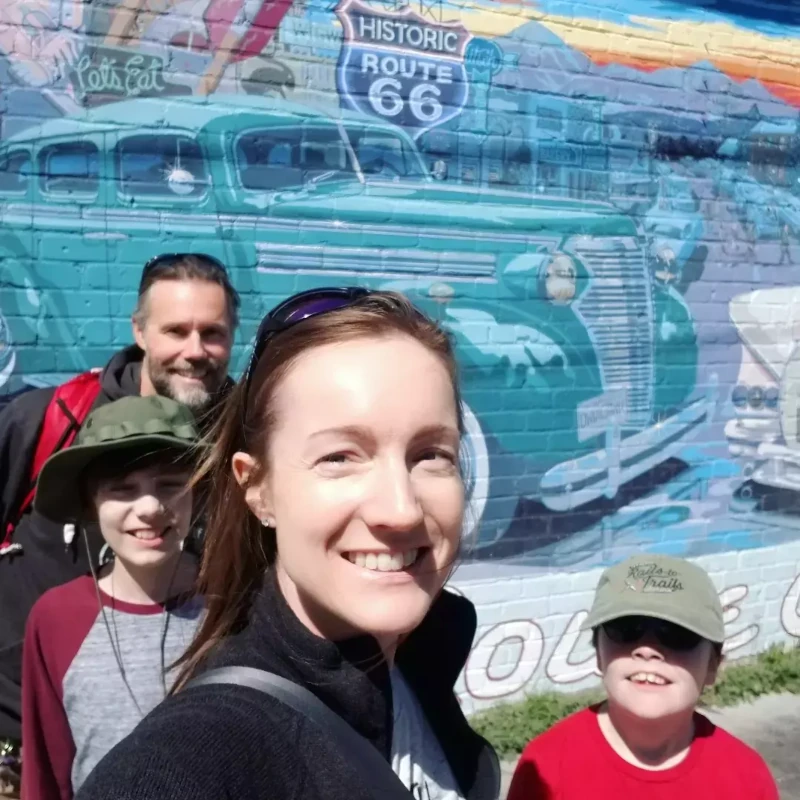
This is often overlooked when one family member is dead set on fulltiming.
If just one person is on the fence and leaning toward not doing it, the door is open for a miserable life on board your RV.
I can’t stress this enough!
Make sure this is something everyone wants. There’s a lot of moving parts and quitting early can be very difficult.
Takeaway: If one person doesn’t want to participate in this journey, find an alternative.
Wrapping Up: Preparing To Live In A Camper Fulltime
As you can see, there are a lot of factors that require serious consideration.
It’s up to you to put the effort in up front.
If you have a well thought out plan covering all the bases, your time on the road will not only be easier, but a lot more enjoyable.
I assure you, with the right effort, it’s an amazing journey!
Have you considered the first step to full-time RV living.
Meet the author.
We appreciate any help in bringing you great content. Donate or buy us a coffee on our Ko-Fi site. Or subscribe to our YouTube Channel.
Thank you so much for being here!
